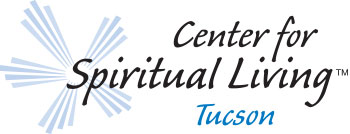
Imagine the universe beautiful and just and perfect. Then be sure of one thing: the Is has imagined it quite a bit better than you have– Richard Bach
Recently Charles and I took some time off, and traveled to Durango, Colorado for my brief break away from Sunday. We explored galleries, and wineries, and walked the historic downtown area. Our two dogs, Ambrose and Ralphie were also included in our family adventure. It was the perfect few days of a “rocky mountain high.”
I have found in ministry; you never really get “time off.” It is part of the soul contract I believe when I decided to take my place in this human experience. Off and on during my time away I thought about what I wanted to “teach.” April’s theme is, “Coming into Life Again.” I received two books from Spirit during my contemplation. Jonathan Livingston Seagull, and Paths to Recovery (Al-Anon’s steps.) I usually become concerned when I receive two “nudges” out of the blue, both appear to be repeating the same information pointing me towards something to do or be aware of. By the “third nudge” its intent is to get my attention, because things are about to change and, in my experience, you do not really want to experience that “third tap” because things are going to get real.
This time it has been “gentler”, and I loved revisiting both books. I read Jonathan Seagull when I was a teenager, and the Al-Anon Recovery book was my guide and anchor during my marriage to my former husband who passed due to congested heart failure and alcoholism. Both with their wisdom go together nicely and will probably show up in my talks this month. However, I have kept alert of there being a “third” book or other for me to pay attention to. I asked the question, “Is this all that I need to know?” A few days later, I received my third nudge.
As I am going through files in my home office looking for my copy of the Easter service, I want to share with all of you this year, IT appeared. It is a poem I wrote many years ago when I was in the middle of Practitioner training. I can remember the feeling of writing it, because I felt different. Something had shifted in my heart and was affecting me deeply. The gift is, after reading it again, I discovered a perspective of, when we enter our spiritual path, we have no idea where it will lead us. I can declare with a grateful heart I am grateful for every experience I receive. Life is a coat of many colors and experiences and this as my “third nudge” I would like to share with all of you.
Life’s Coat
It happened over night it seemed a change was in the air,
I reached first for my sweater, but alas it was not there.
So, I went to my hallway closet, where I knew my old coat hung,
But for some unknown reason, it looked a little different hanging on the rung.
I took it out and tried it on and found it did not fit!
How could this be? I thought and fumed, now this really got me ticked.
But as I took a longer look, my coats parts summed up my life.
Each piece connected one by one, told the story of my strife.
The cloth it was made of was my shield from really living.
The shoulders bore my burdens, though I felt I was forgiving.
Each sleeve displayed my heart that I allowed to be unprotected.
The pockets were where I stuffed the things I loved and neglected.
The lapels were where I displayed, the courage I thought I had,
And the fact no one was close to me, my heart was deeply sad.
As long as my coat stayed buttoned, I knew I could still hide.
However, the hem was a giveaway, unraveling daily, along with my pride.
It was then that the thought struck me, I could put this old coat away.
Never to be taken out again, not even on a rainy day.
The coat had many colors, which up close I could not see.
Ribbons of harmonious perfection bounced back as a mirror, taunting me.
So, I changed my thinking and changed my life,
Putting that old coat back on the pole.
I happily chose another one, this time not for my body, but my soul.
-Namaste with love, Rev. Rhoni
 Consider the following: I have the tools to re-define the reality of my life when I use them.
Consider the following: I have the tools to re-define the reality of my life when I use them.












